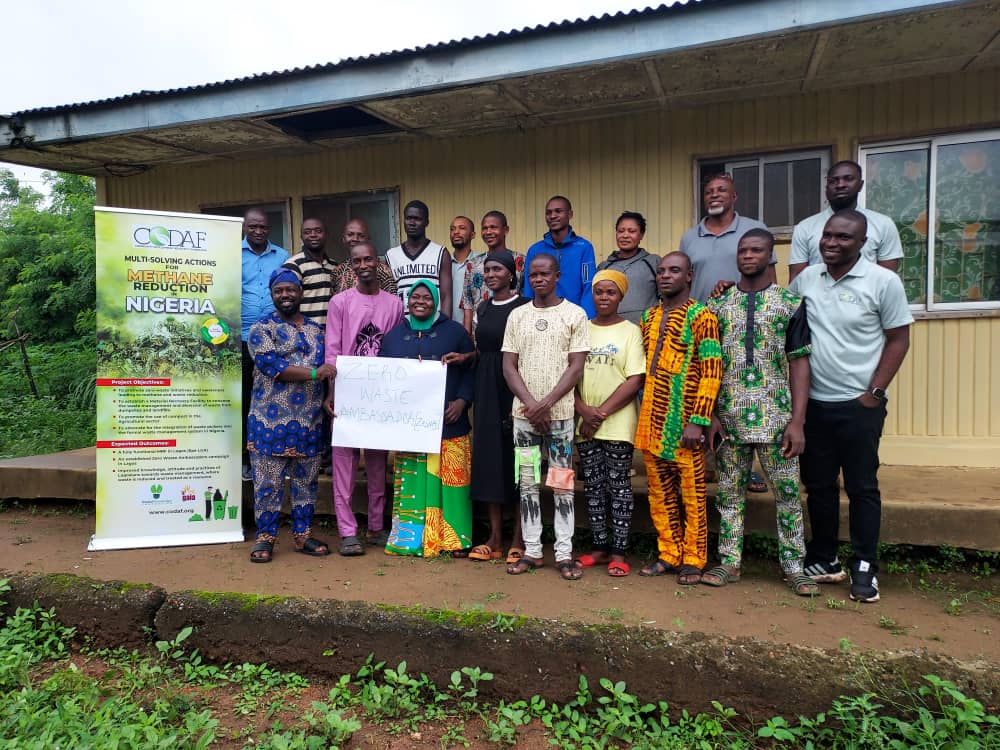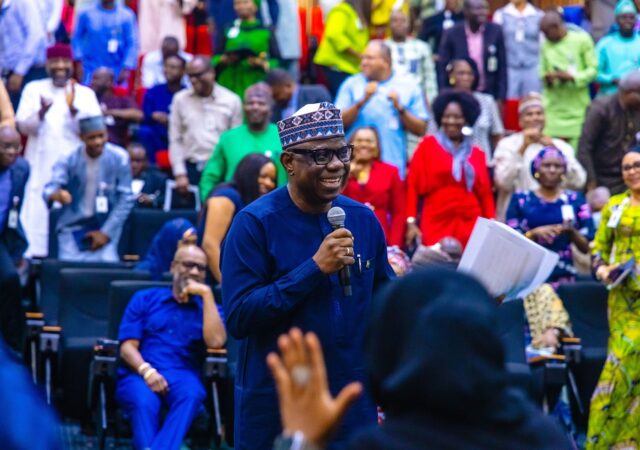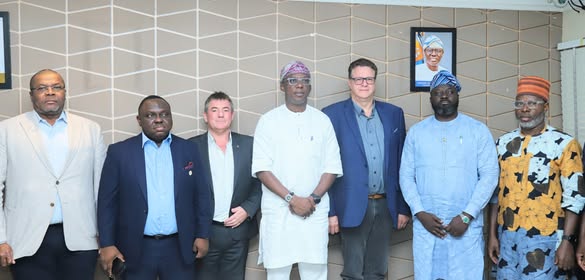CODAF Launches Multi-Solving Methane Reduction Project, built MRF and Inaugurated Zero Waste Ambassadors in Epe
The Community Development Advocacy Foundation (CODAF) has flagged off its Multi-Solving Actions for Methane Reduction project in Epe Local Government Area of Lagos State, selecting the agrarian community as the model site for a pioneering project aimed at reducing methane emissions through a zero waste management practices.
The project features the Material Recovery Facility (MRF), a purpose-built, zero-waste model centre designed to transform household and community waste into economic and agricultural value, while addressing pressing environmental issues such as greenhouse gas emissions.
Speaking during the training session for Zero Waste Ambassadors, Zero Waste Farmers Network, and Waste Pickers, Onyeka Titigbe, Assistant Director of Campaigns at CODAF, said the project is a deliberate response to Nigeria’s growing methane emissions from open dumpsites and poor waste disposal practices.
“What we’re currently practicing across Nigeria is the waste-to-dumpsite model, which is unsustainable. Every evening at these sites, you see smoke, suspected to contain methane, a dangerous greenhouse gas, rising into our atmosphere.
“What we are introducing is a system that treats waste as a resource,” said Titigbe.
The Epe MRF, designed to process up to 200 tonnes of waste weekly, is structured into three core sections:
“Sorting Section: Handles separation of textile, metal, plastic, paper, electronic, and hazardous waste.
“Organic Waste Conversion: Uses Black Soldier Fly (BSF) technology to transform organic waste into eco-friendly compost and animal feed.
“Love Net: A breeding ground for BSF reproduction, aiding sustainable manure production for farming.
A Resource Hub: The hub will train waste pickers, community members and all interested individual on reuse of waste materials in making valuable and marketable products.
As part of its community-first approach, CODAF will work closely with:
Waste Pickers Association to integrate their expertise into the system and pay them for sorted materials.
Farmers in Epe who will receive training on turning organic waste into organic fertilizer and feed, replacing unsustainable chemical inputs.
Zero Waste Ambassadors. These are local champions tasked with household sensitization, promoting waste sorting, and contributing to community-wide waste policy development.
“We already have over 20 ambassadors signed up, and they will be trained to work closely with households, spread awareness, and engage in monthly review meetings,” Titigbe noted.
He added that the Zero Waste Farmers Network will focus on promoting organic agriculture using compost and insect-based manure derived from waste.
The President of the Zero Waste Ambassadors (ZeWA), Akwa Ibom, Mr. Faith Paulinus, officially inaugurated the newly elected Epe chapter of the Ambassadors, charging them to advance community-driven waste solutions and discourage harmful practices like landfilling and incineration.
Mrs. Aminat Shabi, President of the Farmers’ Association in Epe LGA, hailed the initiative as timely and impactful:
“This project is a blessing to our community. It brings cleaner surroundings, creates jobs, and adds value to waste. As farmers, we can now access affordable organic inputs for our livestock and crops.”
Mr. Oladele Ismail Oluwaseyi, a livestock and fish farmer, echoed this optimism:
“Epe is already known as one of Lagos’ cleanest LGAs. With this initiative, we can sustain that status while generating income and protecting the environment.”
Mr. Hakeem Genti, Secretary of the Epe Waste Pickers Association, appreciated CODAF’s inclusive approach:
“We’ve been doing this work for years, but with this project, we can work in an organized system, earn better, and contribute to a healthier community.”
CODAF revealed that the land for the facility—two plots—was donated by the Epe Local Government Council. The organization plans to run the project for two years, after which ownership will be fully transferred to the community.
“This isn’t a profit-making venture for us. The aim is to empower the community and promote a zero waste future where waste becomes a resource cum wealth,” said Titigbe.
Future plans include expanding to state level through a Zero Waste Parliament, which will engage stakeholders like LAWMA, LASEMA, and the Lagos State Ministry of Environment in policy advocacy for sustainable waste management.







